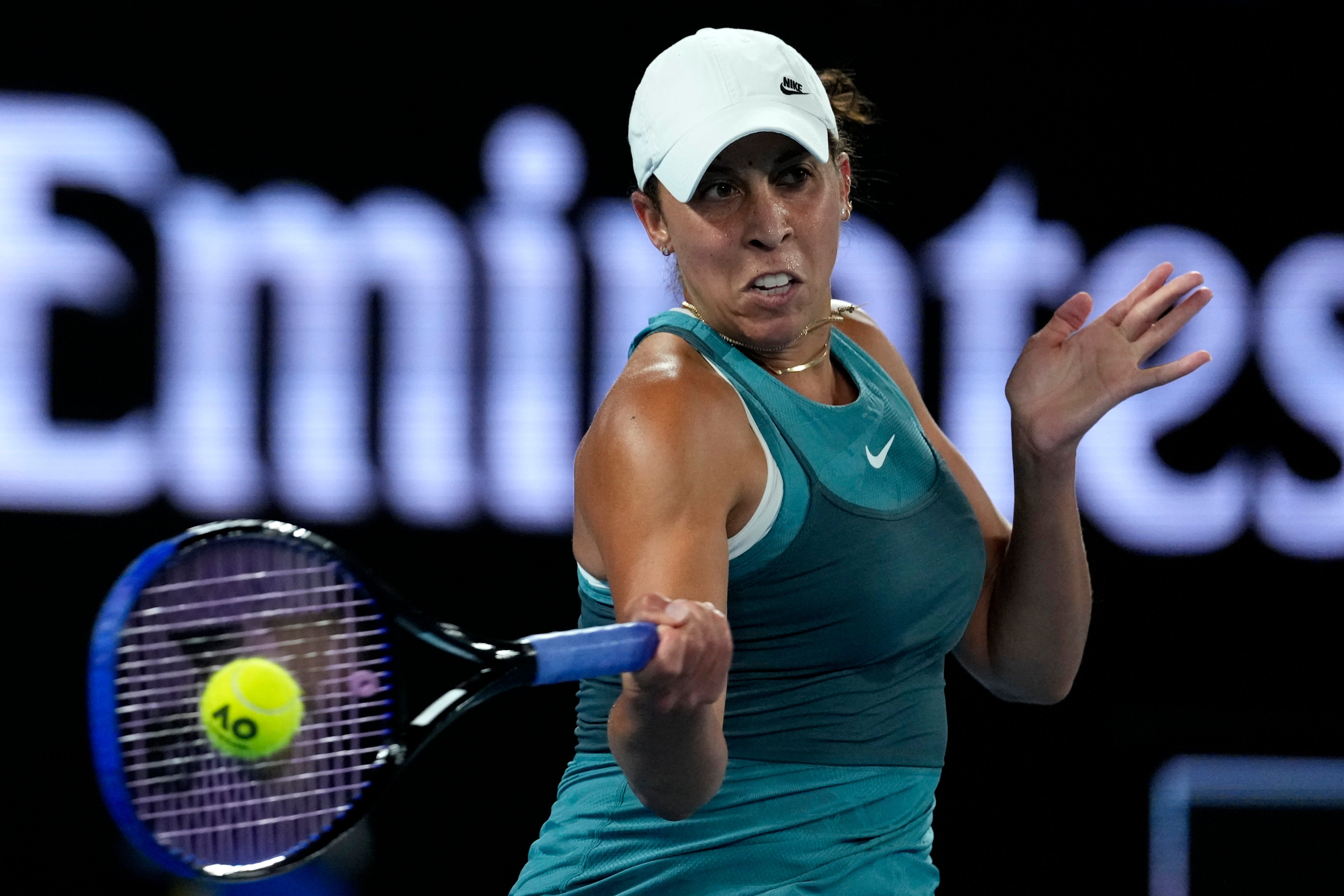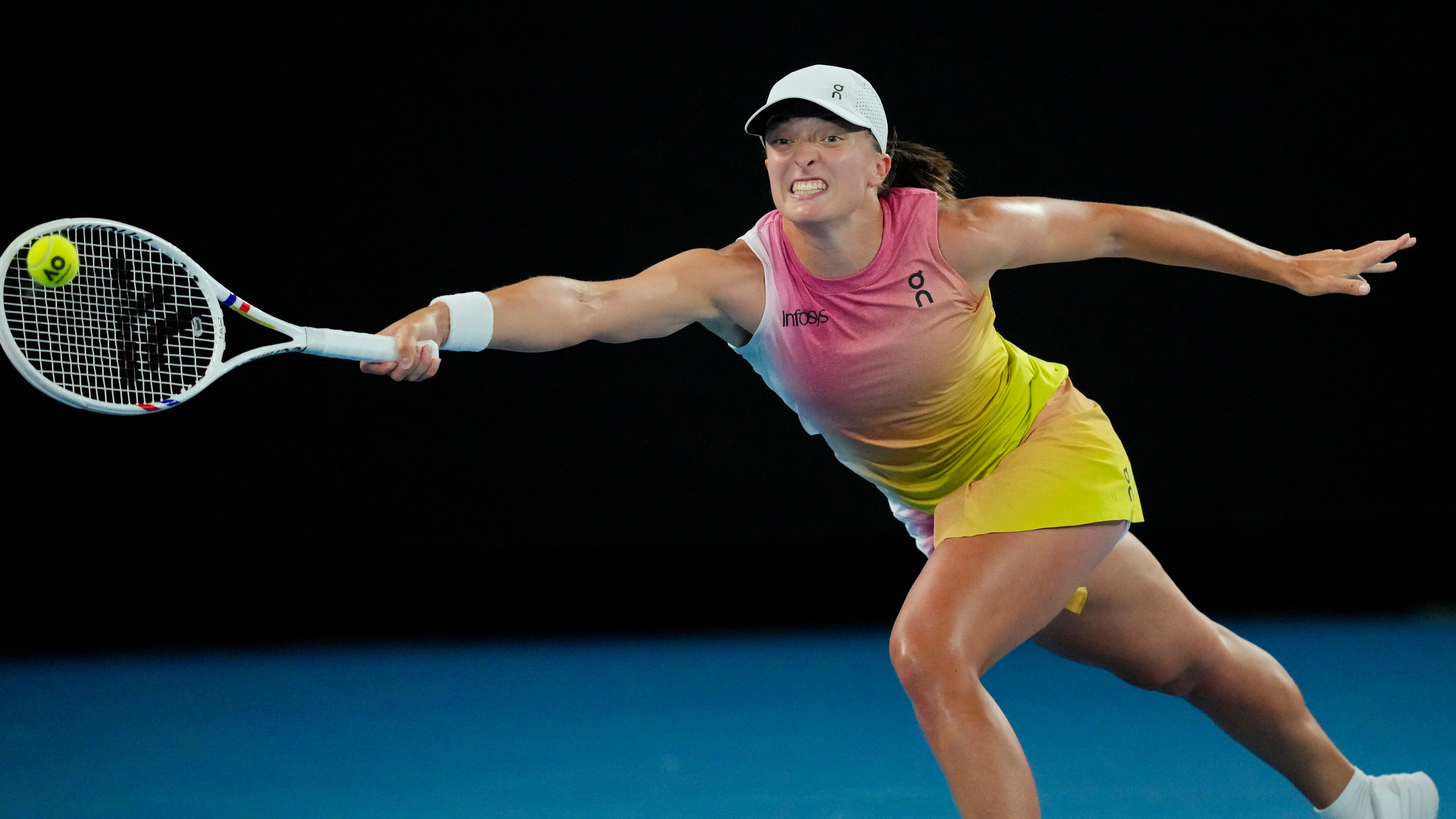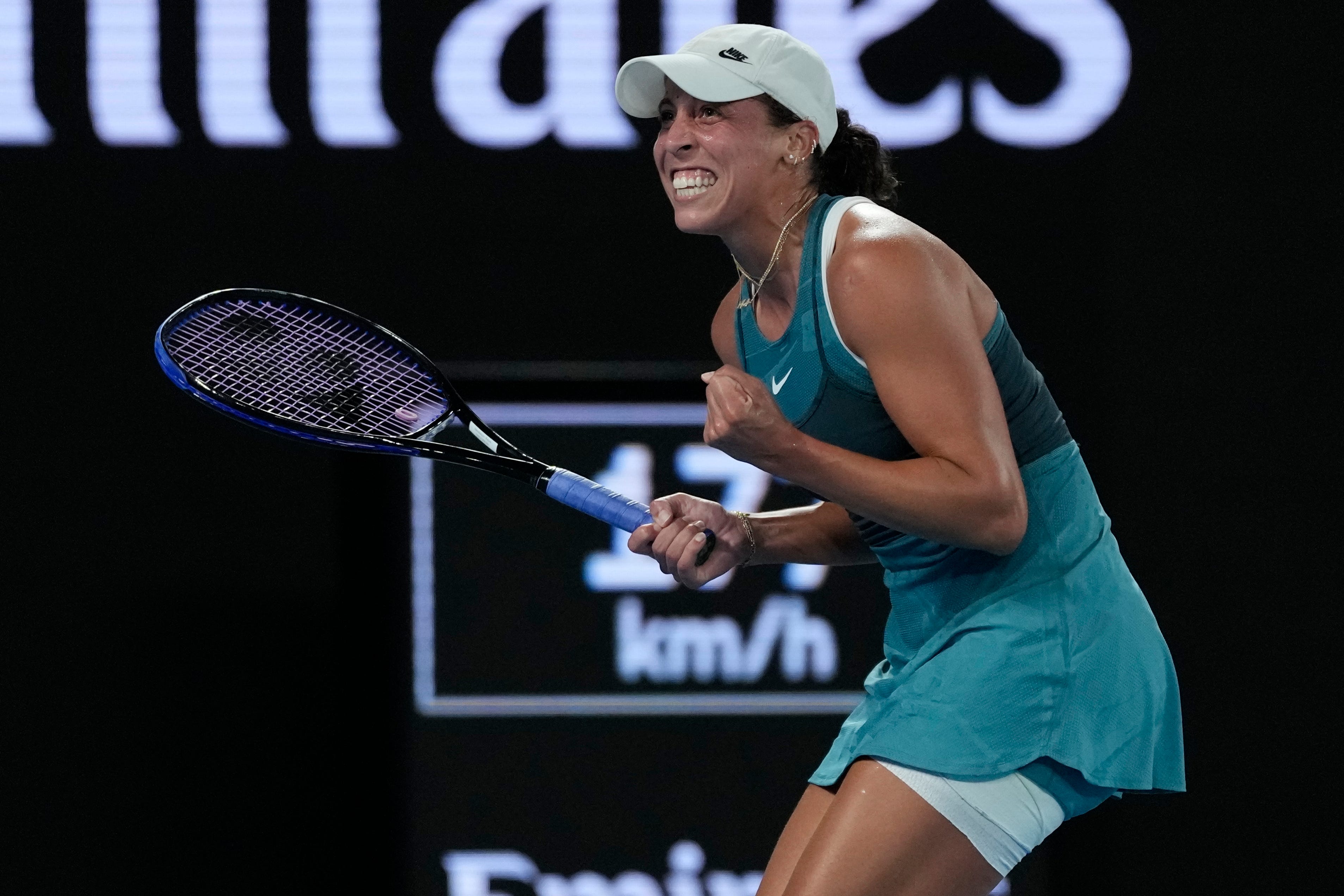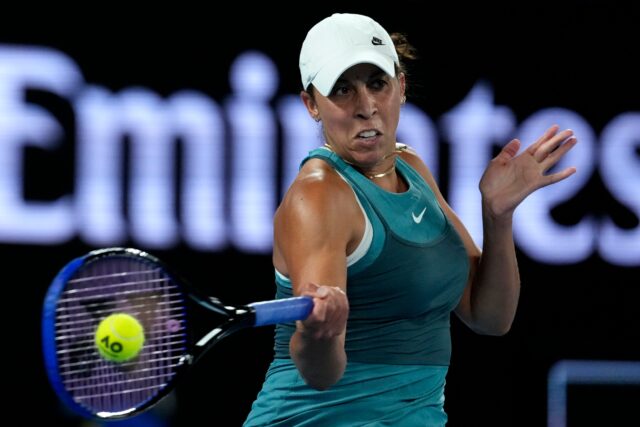Your support helps us to tell the story
From reproductive rights to climate change to Big Tech, The Independent is on the ground when the story is developing. Whether it’s investigating the financials of Elon Musk’s pro-Trump PAC or producing our latest documentary, ‘The A Word’, which shines a light on the American women fighting for reproductive rights, we know how important it is to parse out the facts from the messaging.
At such a critical moment in US history, we need reporters on the ground. Your donation allows us to keep sending journalists to speak to both sides of the story.
The Independent is trusted by Americans across the entire political spectrum. And unlike many other quality news outlets, we choose not to lock Americans out of our reporting and analysis with paywalls. We believe quality journalism should be available to everyone, paid for by those who can afford it.
Your support makes all the difference.
Tennis has seen its fair share of mesmerising performances. Andy Murray’s gallant five-set thrillers, Roger Federer and Rafael Nadal clashing in their prime, Serena Williams dominating with power and skill in equal measure.
Madison Keys and Iga Swiatek provided another one. Under the roof and the lights of the Rod Laver Arena the pair delighted, thrilled, and broke the hearts of themselves and the watching crowd as Keys claimed a 5-7 6-1 7-6 (10-8) win in a match fit for a final.
Only this wasn’t one. It was a semi-final and the reward for the winner was a meeting with defending Australian Open champion Aryna Sabalenka. Sabalenka who, earlier in the day, had powered her way past Paula Badosa in a 6-4 6-2 victory to book her spot in the showpiece match and set up the chance to win a third title in a row at this tournament.
Swiatek is ranked number two in the world and was the favourite to triumph ahead of the start. Yet, from the get-go it seemed as though the Pole wasn’t settled. An immediate break of serve from Keys should have been the sign that this match would be anything but simple. When Swiatek broke back in the second game that realisation was beginning to dawn. Two more breaks followed, and the first set was on serve despite neither player managing to hold their own.
But that was just the opening salvo. Swiatek settled into a better rhythm and took control with Keys missing too many attempts to win with her driving forehands. There was a moment for Swiatek, a kind bounce and good angle to dispatch a backhand down the line which would have won the set comfortably, but she missed. Instead, Keys responded and drew level, her tennis steadily improving and her confidence growing. Swiatek took the first set 7-5, breaking Keys’s serve in a crucial game to take the lead.
Perhaps she thought that would be enough. That the resistance was broken. It wasn’t. Far from it.
“I feel like even though I lost the first set I was playing some better tennis at the end of it, and that I had a little bit of momentum going into the second set,” Keys said after the match.
She had found her range. Both on her first serve and on her forehand. What followed was unpredictable. The American broke Swiatek in the first game of the second set, then held her own serve. She opened a 5-0 lead and had the Pole flustered and mentally shot. Swiatek, a usually quiet and calm character, was gesturing wildly and muttering admonishments to herself. It all seemed a bit much for her.

But Swiatek is a five-time grand slam winner. Though the second set was lost she took a game off Keys and found an added layer of… something. That special ingredient that rises from the pits of your stomach and overwhelms the senses. Grit, determination, mental fortitude, so many different words to describe the will to win.
Swiatek had found hers. “That match was such high level, and she played so well, and I just felt like I was fighting to stay in it,” explained Keys.
A deciding third set was different again. Neither player could break through. Hold after hold ensued, despite some tense moments and plenty of break points saved.
Swiatek broke first. Keys’s forehand had been her ultimate weapon in the second set but her accuracy dipped towards the end of the third. Yet, it was a misplaced drop shot from the American that brought the break as Swiatek swept a forehand down the line to move into the lead.

Now she was serving for the match. If Swiatek’s fortitude was impressive it was nothing compared to Keys’s. The 29-year-old had the momentum, she was playing the better tennis, she was aggressive and powerful and accurate… she was defending match point.
Swiatek served to the middle of the box, Keys struck a forehand back, Swiatek found the net. Point saved.
Such an exceptional match couldn’t be settled in the usual fashion. It needed a 10-point tie breaker and Keys trailed for most of it. The crowd were waiting for their moment to praise Swiatek. That moment never came.
Two rapid serves from Keys took her into the lead and a forced error, with Swiatek sending an attempted winner long, gave her the win. The jubilation was deafening. Rod Laver Arena erupted. Keys secured a spot in the Australian Open final for the very first time and reached her first grand slam final since 2017.

“I feel like I blacked out at one point, and I was just running around. So to be able to stay in it and stay fighting, and then there was a 10-point tie breaker for an extra dramatic finish,” stuttered a bewildered Keys during her on-court interview.
“I think at the end we were both battling some nerves and really just pushing each other, and it came down to who can get this final point and who can kind of just be a little bit better than the other one. I’m happy it was me.”
In 2017, Keys lost the chance to win a grand slam title when she was beaten in the US Open final by Sloane Stephens. On Saturday she has another chance, and if she can find the same level of grit and determination that she displayed here, her will to win may just win out.






